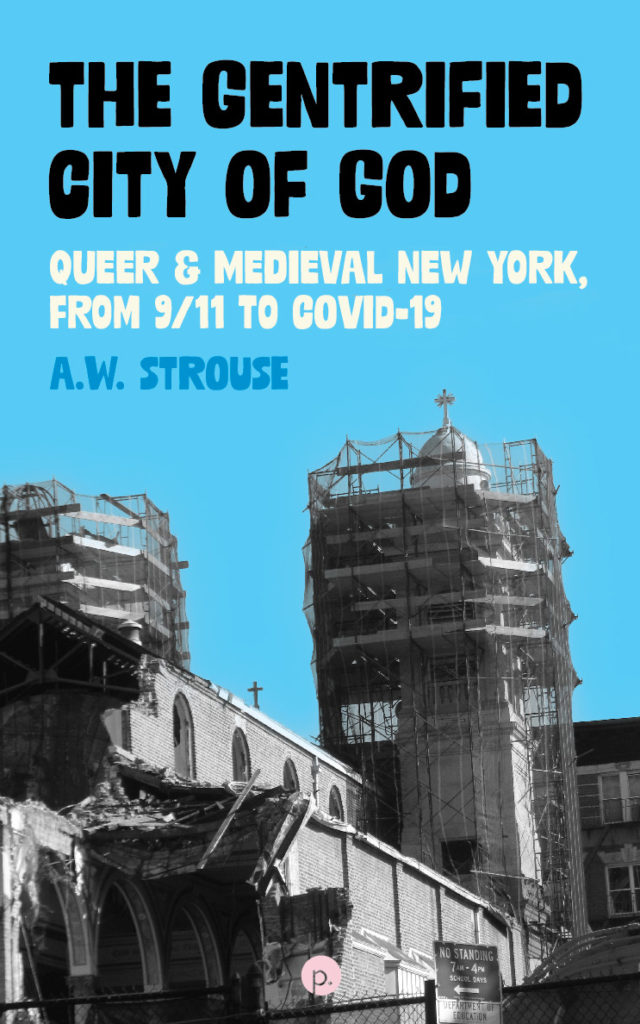The United States is a spiritual wasteland—a two-party dictatorship that worships money and that eats human beings alive, where racial and gender oppression attack the body, and where partisan polarization stifles the mind. In this dreary context, A.W. Strouse pursues a life of sin and salvation. As a queer scholar of the Middle Ages and a promiscuous gay Catholic in New York City, Strouse takes Saint Augustine as a guide for turning the personal confession into a critical meditation on gentrified urban space.
The Gentrified City of God narrates Strouse’s own spiritual quest in order to develop a queer-medievalist lens for understanding how white Christian nationalism is turning urban space into a puritanical discipline of moralistic detachment. Mixing first-person confession with cultural criticism, Strouse tours through gentrified spaces—gay bathhouses, Brooklyn ghettos, demolished Churches, and corporate universities—exploring how sex and spiritually intersect, in art and architecture, poetry and public policy.
By closely examining the city from a first-person, queer-medieval vantage—communing with St. Patrick’s Cathedral, the HIV/AIDS Memorial, and St. Vincent’s Hospital, along with rap lyrics, Donald Trump, and paintings by Kehinde Wiley, and even folding in Strouse’s own bad romances and precarious academic labor conditions—The Gentrified City of God seeks to uncover a secret redemption that may yet lie within the brokenness of U.S. society, and to probe the mysteries of good and evil that reside within the heart of New York City.



One thought on “The Gentrified City of God: Queer & Medieval New York from 9/11 to COVID-19”
Comments are closed.